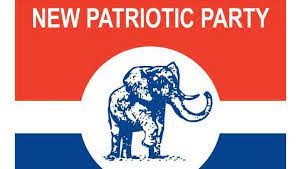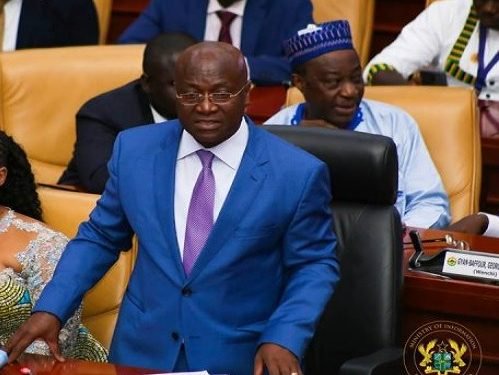
The NPP’s loss in the 2024 elections can be traced to several specific, factual instances and events that contributed to the electorate’s dissatisfaction. Below are some of the key instances and developments that played a crucial role in their defeat:
1. Economic Struggles and Inflation
Rising Inflation (2022-2024): Inflation reached a peak of over 54% in 2023, driven primarily by skyrocketing food prices and fuel costs. In the first quarter of 2024, inflation remained persistently high, affecting the cost of living for Ghanaians. The central bank’s policy interest rates, which peaked at 30%, were a reflection of the struggle to contain inflation. The ordinary Ghanaian felt the pinch, particularly in urban and peri-urban areas where transportation and food costs are central to daily life.
Example: In 2023, prices of essential food items like maize, rice, and palm oil saw year-on-year increases of over 50%. For instance, a bag of rice, which cost around GHS 180 in 2020, was being sold for around GHS 500 in 2023, making it unaffordable for many families.
2. Currency Depreciation and the Cedi Crisis
Depreciation of the Cedi (2021-2024): The Ghanaian cedi experienced significant depreciation, losing more than 50% of its value against the US dollar in 2023 alone. The cedi’s depreciation further fueled inflation and exacerbated the financial burden on households.
Example: In 2023, the exchange rate shot up to over GHS 15 to 1 USD, compared to around GHS 4.5 to 1 USD in 2020. This sharp decline in the cedi affected the cost of importing goods, further driving up prices for everyday essentials, from fuel to food items.
3. Debt Crisis and IMF Bailout
Rising National Debt and Debt Service: Ghana’s national debt reached alarming levels during the NPP’s tenure. By 2024, the country’s debt-to-GDP ratio exceeded 100%, largely due to increased borrowing in the years following 2016. Debt servicing, particularly for external debt, became unsustainable, putting additional pressure on government finances.
Example: In 2023, Ghana entered into an IMF bailout program after being unable to service its debt. The deal required Ghana to adopt austerity measures, such as increasing taxes and reducing public sector spending. These measures became highly unpopular, particularly with the working class and pensioners.
4. COVID-19 Pandemic Impact
Economic Contraction Post-Pandemic (2020-2021): Ghana’s economy contracted by 3.2% in 2020 due to the economic slowdown caused by COVID-19. Although recovery began in 2021, the effects of the pandemic lingered, leading to further economic hardship for the populace, especially the informal sector, which comprises a significant portion of the workforce.
Example: Many businesses, especially in the hospitality and tourism sectors, were unable to recover post-pandemic, contributing to a sharp rise in unemployment. The NPP government struggled to balance pandemic relief with fiscal prudence, which led to budget deficits and a strained public service sector.
5. Corruption Allegations and Governance Issues
“Agyapa Royalties” Scandal (2020): One of the major corruption scandals that plagued the NPP administration was the controversial “Agyapa Royalties” deal. The government sought to pledge Ghana’s mineral royalties in exchange for funding through a company called Agyapa. The deal, which was marred by allegations of conflict of interest and a lack of transparency, was widely criticized as a dubious financial arrangement that lacked accountability. (Source: Africa Center for Energy policy)
Example: Despite protests and investigations by civil society organizations and opposition parties, the deal was approved in Parliament in 2020, but it faced severe backlash, leading to its eventual suspension by the government. This scandal became a symbol of alleged corruption within the NPP administration.
Other Corruption Scandals: Other incidents, such as the Kroll and Associates report scandal, where millions of dollars were allegedly misappropriated in consultancy fees, this further tarnished the party’s image. Public perception of corruption in government undercut the NPP’s credibility and trustworthiness, leading many voters to turn against the party in 2024.
(SOURCE: Krill and Associates scandal)
6. IMF Conditions and Austerity Measures
Austerity Measures (2023-2024): After Ghana entered an IMF bailout program in 2023, the government was required to implement austerity measures, including tax hikes, public sector pay cuts, and reductions in subsidies. These measures were unpopular, particularly among workers in the public sector and ordinary citizens, who felt the burden of the country’s fiscal mismanagement. The austerity measures were seen as directly hurting the everyday Ghanaian while the elite and political class remained relatively unaffected.
Example: In 2024, the government increased taxes on goods and services (VAT) and announced public sector wage freezes, leading to protests from teachers, nurses, and civil servants. The increased financial strain added to the public’s frustration with the NPP’s leadership.
7. Youth Unemployment and Job Creation Challenges
High Unemployment Rates (2020-2024): Despite the NPP’s attempts to create jobs through initiatives like the Nation Builders Corps (NABCO), youth unemployment remained a significant problem. According to the Ghana Statistical Service, the youth unemployment rate in 2024 was estimated at over 30%, contributing to widespread frustration and disillusionment among young voters.
Example: Many graduates from universities and vocational institutions faced difficulty in finding stable, meaningful employment. This lack of job opportunities led to increased migration abroad for employment, particularly to countries like the United States, Canada, and the United Kingdom.
8. Internal Party Divisions
Factionalism within the NPP: The NPP experienced internal divisions, particularly over the party’s leadership and the selection of presidential candidates. This internal infighting weakened the party’s unity and morale ahead of the 2024 elections. Discontent within the party, especially among members who felt sidelined by the leadership, contributed to a fractured electoral strategy.
Example: In 2023, there were public squabbles between NPP members regarding the choice of the party’s presidential candidate for 2024. Some party factions wanted a change in leadership, while others wanted to maintain Akufo-Addo’s influence. This lack of cohesion within the NPP made it difficult to project a unified front to the electorate.
9. NDC’s Resurgence and Campaign Effectiveness
Opposition Mobilization: The National Democratic Congress (NDC), under John Mahama’s leadership, capitalized on the economic hardship under the NPP, presenting a credible alternative for economic recovery. The NDC focused on promises to reduce inflation, create jobs, and stabilize the economy.
Example: Mahama’s campaign emphasized his previous successes in office, such as his role in stabilizing the economy during his tenure from 2012-2016. The NDC’s grassroots engagement, particularly in rural areas, allowed them to gain a significant portion of the electorate that felt neglected under the NPP government.
Conclusion
The NPP’s loss in the 2024 elections was due to a combination of economic mismanagement, corruption scandals, growing public discontent, and internal party divisions. The rapid depreciation of the cedi, rising inflation, and youth unemployment created a sense of economic hardship, while corruption scandals like the Agyapa Royalties deal further eroded public trust. These issues, compounded by the rise of the NDC as a credible alternative, led to the NPP’s defeat at the polls.
Source: m.dailyadvent.com




